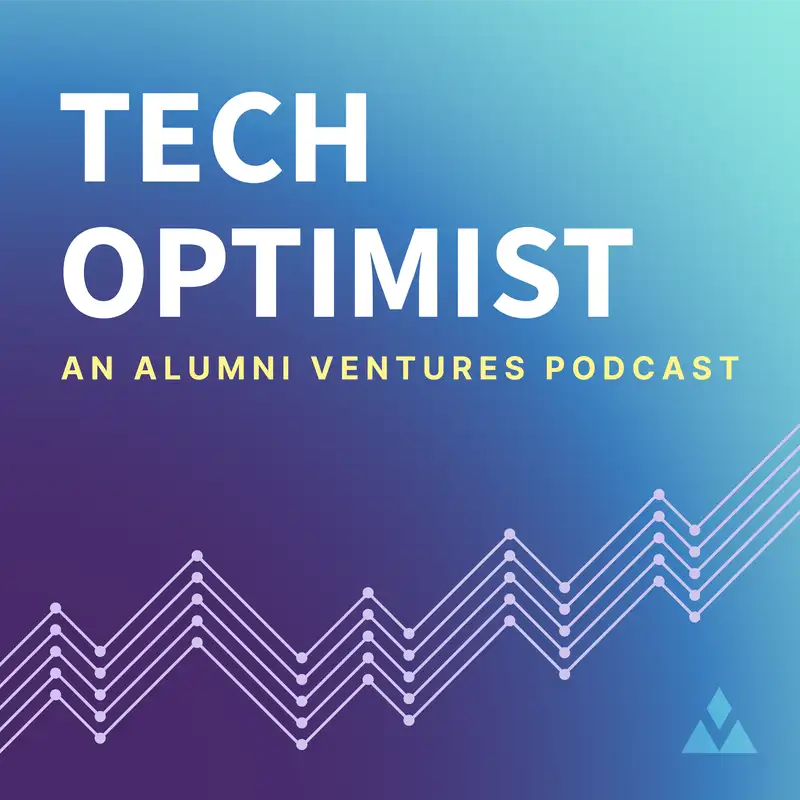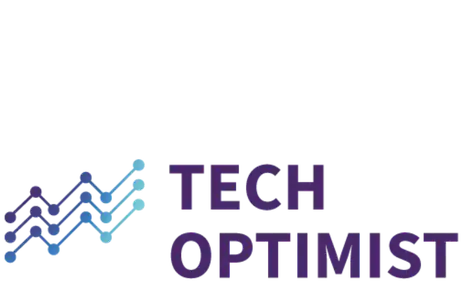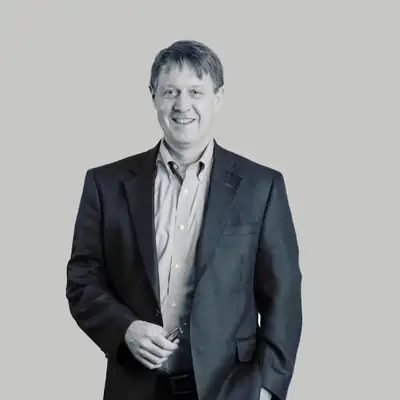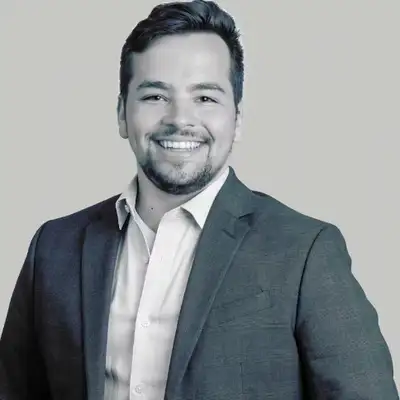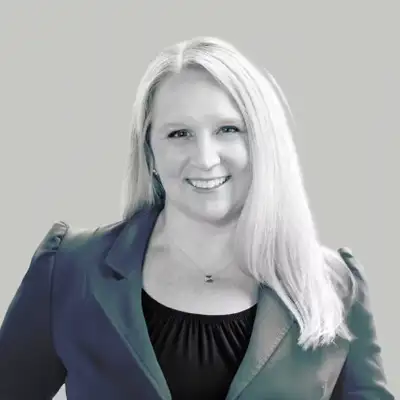#9 - Three Breakthroughs: Brain Computers, Ohalo, & Manipulating Weather
Voiceover:
In a world captivated by criticism, it's easy to overlook the groundbreaking technologies shaping our future. Let's shine a light on innovators who are propelling us forward. As the most active venture capital firm in the US, we have an exceptional view of tech's real-world impact. Join us as we explore, celebrate, and contribute to the stories of those creating tomorrow. Welcome to the Tech Optimist.
Disclosure:
As a reminder, the Tech Optimist Podcast is for informational purposes only, is not personalized advice, and is not an offer to buy or sell securities. For additional important details, please see the text description accompanying this episode.
Mike:
Ready?
Drew Wandzilak:
I'm ready to go.
Mike:
Okay. So welcome to this episode of the Tech Optimist Podcast. This is the three breakthrough segments where we talk about what we think are three announcements or breakthroughs from the last week or so that we think have potential big impact for the world. And I'm here with Drew Wandzilak, who's a senior associate with Alumni Ventures. Drew, where are you today?
Drew Wandzilak:
I am in our New York City office right here by the Empire State Building.
Mike:
How's the weather in New York today?
Drew Wandzilak:
It's beautiful. It's been warm everywhere I've gone coming from Chicago, and it's practically short sleeves and short weather everywhere.
Mike:
Even in Southern New Hampshire here today, I think it's 85. We're definitely in the new season.
Drew Wandzilak:
Indeed.
Mike:
All right, so I think this week you go first. What's caught your eye? What's a big breakthrough that's going to change the world?
Drew Wandzilak:
So this is week two, and I've already decided to stretch the rules of the...
Mike:
That didn't take long,
Drew Wandzilak:
Three breakthroughs segment here. My big announcement breakthrough is actually Neuralink getting approved, gaining green light from the FDA for a second patient. So as a reminder for everyone, Neuralink, this is the Elon Musk brainchild, pun intended, that connects brainwaves directly to a computer.
Mike:
This was on my list too.
Drew Wandzilak:
This is on your list too?
Mike:
No, it's good. You got first call. So good for you.
Drew Wandzilak:
To recap, they put this in an initial patient, which was I would say semi-successful. There's been some issues with some of the wires getting detached. And so for the second patient, they're going to have to go a little bit deeper. But good signs, good signals that they're putting this in a second patient. And the reason I'm stretching the bounds a little bit here is because there was another announcement in the last week from UCSF. They were actually able to restore bilingual communication with the brain computer interface.
Why is that important? Well, you can actually differentiate between Spanish and English when you're taking someone that is nonverbal, doesn't have the ability to speak, and you're giving them that ability back. And so being able to understand between different languages is really important. And they were successful on this. Clinical trials, but successful to date, part of this larger project called BRAVO, which is Brain-Computer Interface for Restoration of Arm and Voice.
And so I think just really great signals and steps as we think about what is the future of putting a small computer inside of our head. And it's not just for allowing a quadriplegic to play a video game. It's restoring, I think, very vital functions of voice, of motion, communication to people that have lost it.
Mike:
And I think if we're really looking ahead 10, 20, 30 years, I think this merging of humans and machines, it is... I mean, obviously this is a big barrier between silicon and a human brain, but it is the very, very first steps on that for sure. And I do think there's a scenario where there is a merging of those two things over time. I think it not only points to these short-term things, but I think it's directionally where the puck is heading.
There also was some really interesting news this week on other things dealing with the brain and brain mapping. And so I think we'll probably talk about that in probably more detail in future episodes, but I think there's a lot of really interesting work going on the interface, but also just understanding the human biological computer as well. So I think that's a good one.
Drew Wandzilak:
I mean, it's not nice to have. People that are affected by this where this would be a huge solution for them I think understand the benefits of technology like this. It's not just, can we put Siri in my head or be able to call an Uber just by thinking about it, but it's people that have lost the ability to communicate, move, and how much that excludes people from, especially as we're in this digital world where everything is digital. And if you can't move a cursor on a screen, what does that prohibit you from doing?
Ad:
Ever wonder how the ultra wealthy invest their money? They often back startups before they go public through venture capital. Now individual investors like you can too with Alumni Ventures. Visit av.vc to get started.
Drew Wandzilak:
Mike, your breakthrough?
Mike:
My breakthrough, I'm going to really change gears here and I'm going to go into food innovation. And this was the coming out of stealth of a company called the Ohalo, O-H-A-L-O, I believe. And this is a company that is really trying to innovate in the area of food and food breeding. And if you really look at the progress of civilization and the ability of the planet to feed 8 billion people, it's really come across through making certain food stuffs scalable, wheat, rice, et cetera. Where you've converted corn from basically a grass into something that is...
Just drive through Iowa. And the ability to just produce massive amounts of calories in an industrial way has been profound. But the way that has been done historically, and again, I would encourage people, I think they have some really good videos on YouTube and on the website, we'll put those in the show notes, but they do a pretty nice history lesson as well about the way one has done that is really trial and error and cross-breeding. Basically you're combining DNA of two plants and it's a random mix-up, and you have to rinse and repeat that over lots and lots of generations.
And so when you can begin to do that with technology and software, you can just greatly accelerate progress. And again, if you can improve yields and if you can improve the desirable characteristics of plants where you can grow things in places that historically you couldn't grow them or you could grow them with less water and less fertilizer, it is a big unlock. And again, pretty early stage company. I think they've raised 50 million or so, so still a big journey in front of them.
But the technology, it sounds very, very promising and some of their early results are really, really impressive. And there's, again, just a huge value creation unlock. Again, you can look at the big seed companies, Pioneer, Monsanto, these players have created enormous amounts of value. But I think we may be entering into a new era of that with both software and CRISPR technology and some of the insights we have and how these things work that I think there's huge potential now in the area of plant breeding that could be, again, change the world kind of stuff.
Drew Wandzilak:
I live in the Midwest. You're from the Midwest. So when you mentioned driving through the fields of Iowa, I think people that aren't in those environments don't realize just the scale that even just US agriculture is at. And then in the tech world, you have this environment where you hear about cultured meat or cultured proteins, vertical farming, all these great innovations that I think are increasing access to sustainable food practices. But it's a couple drops in the bucket compared to the scale of traditional agriculture.
Mike:
Wheat, corn potatoes. When you're looking at feeding 10 billion, 12 billion people, again, it's just how can you develop that many calories with not depleting the soil, water, all the environmental factors that you have to manage. And again, the use of technology to whenever you can move things on a different technology plane. We talked, I think, last week about the ability to model in software things like proteins and small molecules instead of trial and error in a lab.
This is, again, an analogous, where can I do this through a technology platform as opposed to just out in the field, literally bringing together two plants that happen to do better in a row. And there's a really interesting book that I would also recommend, The Wizard and the Prophet. The name may be a little wrong there, but it really looks at... We'll get that right in the show notes, but it really takes the history of how we address the future, either through technology solutions or having an approach of being conservationists.
And one of the things they go through is just how industrial wheat was invented and produced. And it's really just a fascinating story and history lesson for tech nerds. And again, a pretty philosophical approach about how do we move forward in the world. And again, as venture capitalists and just where we are personally is we're believers that technology is the way you're going to solve problems, not by going back to hunter-gatherer or gee, we need to get the population of the world back down to a million people. That's not our solution.
Ad:
Hey, everyone, just taking a quick break so I can tell you about the Deep Tech Fund from Alumni Ventures. AV is one of the only VC firms focus on making venture capital accessible to individual investors like you. In fact, AV is one of the most active and best performing VCs in the U.S. And we co-invest alongside renowned lead investors.
With our Deep Tech Fund, you'll have the opportunity to invest in innovative solutions to major technical and scientific challenges which can have a hugely positive effect on society, companies that have the potential to redefine industries and create a more sustainable future and deliver significant financial returns. So if you're interested, visit us at av.vc/funds/deeptech. Now, back to the show.
Mike:
Okay, what's your third one, Drew?
Drew Wandzilak:
Well, it's funny, I'm glad you brought up food and agriculture. I mean, for people watching and listening, Mike and I this week decided not to tell each other what we were going to do, and I think I hit your Neuralink one. But for my third breakthrough, a similar two announcements that are related, but in our innovations within the sky and the clouds as they relate to climate, as they relate to agriculture.
And so the first one is actually an anti-breakthrough where University of Washington researchers were stopped by the government in their research that they were trying to put particles up into clouds that would actually reflect more sunlight back up away from the ground. There, of course, is some potential environmental concerns to doing that, but I think starts to drill into this concept of can we actually start to modify the climate that supports our response to climate change and to global warming?
So that was one announcement, and again, kind of an anti-breakthrough, but I think showing meaningful progress there. And it reminded me of this company that came out of stealth a couple months ago called Rainmaker. They're not doing particles to reflect the sun. They're actually putting particles into clouds to induce rain. And so you touched on this point of can you grow crops in areas that they traditionally wouldn't be able to grow? Can we bring communities out of droughts?
Can we reduce flooding? Can we reduce the severity of hurricanes? And this startup thinks we can. And by flying drones and dropping I think it's like sodium iodine particles into the clouds, you can modify what's happening in those clouds. And that has a major impact on everything from farmers to ski resorts and talking about getting the right snow for ski season. There's some interesting stuff there. Would love your thoughts.
Mike:
No, I mean, I think they had some big storms and flooding in the Middle East there. I don't know if you saw pictures of those. We'll probably put those up in show notes because they had been doing some cloud seeding. I also think this week we had a fatality with turbulence on a flight that was going through the part of our... And again, these things tend to get hyped. There's like a trillion travel miles and we had one fatality, but there's a band of our planet where turbulence is really more pronounced, which this was right in the middle of.
I think it was a flight to Singapore. And again, I understand this reaction to don't mess with Mother Nature. And again, I think you probably saw that in Washington State, but I think it's a very healthy debate, which is by being on this planet in huge, huge numbers, we are messing with Mother Nature every day. And so I don't think it's a choice of do we or don't we? It's how do we do it? How do we do it intelligently? How do we understand that for everything we do, there's an unintended consequence?
So one does have to be careful, and I think there's a rubric about risk-reward, unintended consequences. Have we adequately modeled this? The challenge with a lot of these issues too related to the environment is you're going to impact your neighbor. I mean, one thing right now is in New England, we had an air quality alert. While we have an air quality alert because we have some very nasty states with very nasty power plants and factories throwing stuff up in the air that floats over our state.
Thank you very much. A little bit of a shot at our Ohio neighbors. But yeah, we have in New Hampshire, which has very little industry, had air quality alert. But on a bigger scale it's like, oh, you start doing things in the United States, how does that impact Europe? Things go on in China, how does that impact the environments of the United States? And so I do think there is a place for international cooperation in this period of nationalism for us to work together on some of these problems.
And yes, we have too much carbon. We need to work on putting less carbon up into the atmosphere, but at some point that's still not enough. And people aren't going to give up their cars, and we're not going to turn into EV overnight. So what are we going to do? Well, one of the things that works is reflecting sunlight back up, which clouds do really well. So can we have more clouds? Can we do things that reflect a little bit more of that sunlight? Three, four more percent makes a huge difference.
Drew Wandzilak:
I think it's a PR issue to be a little bit more straightforward. I mean, I think it's a PR issue. For some reason, I think when people think about... Myself included, when you first hear about this concept of cloud seeding, it seems so you're playing Mother Nature, right? You're playing God. You're modifying the weather. Dams are like modifying Mother Nature. You're choosing the flow of rivers and lakes. There's ways that we've modified the earth and nature.
Mike:
Iowa is not natively filled with corn and wheat, right? I mean, it was grasslands until we came and turned it into a bread basket. So yeah, every day we are messing with it. That doesn't mean we don't think about it, do it thoughtfully. There's a role for regulation, international cooperation for sure.
But to say no reactively to alternatives, to protein, to intervening with carbon capture or running experiments in this regard I think is very short-sighted. And again, at the same time, just reading this week about the poles melting at even more alarming rates with stuff going on, it's like, okay, doing nothing is a choice or hoping is a choice as well. So yeah, it's a good one. That's a good one.
Drew Wandzilak:
Yeah, great.
Mike:
Excellent. All right, we'll do it again next week. I got two to do. You get one.
Drew Wandzilak:
Awesome. Thanks, Mike.
Mike:
We'll talk again. Thank you, Drew. Good discussion. Bye-Bye.
Voiceover:
Thanks for tuning in to the ninth episode of The Tech Optimist. Come back next Thursday for another installment of Three Breakthroughs with Drew and Mike. Look out for episode 10 of the show where Grant Demeter interviews Mike about his journey with Ozempic, a GLP-1 weight loss drug. You won't want to miss it. Have a great rest of your week and keep building.
Disclosure:
Thanks again for tuning into the Tech Optimist. If you enjoyed this episode, we'd really appreciate it if you'd give us a rating on whichever podcast app you're using, and remember to subscribe to keep up on the weekly episodes. The Tech Optimist welcomes any questions, comments, or segment suggestions. So please email us at info@techoptimist.vc with any of those and be sure to visit our website at av.vc. Thanks again. Until next time.
